A Look Inside The Lives of Ordinary Swedes, 55 Facts About Swedish Culture Guaranteed To Make You Go “Wow!”
Fewer Hours, More Productivity
Work-life balance in Sweden is praised highly by foreigners who have worked there. Sweden, a country at the forefront of innovative social policy, has taken measures to alter the working conditions of its residents.
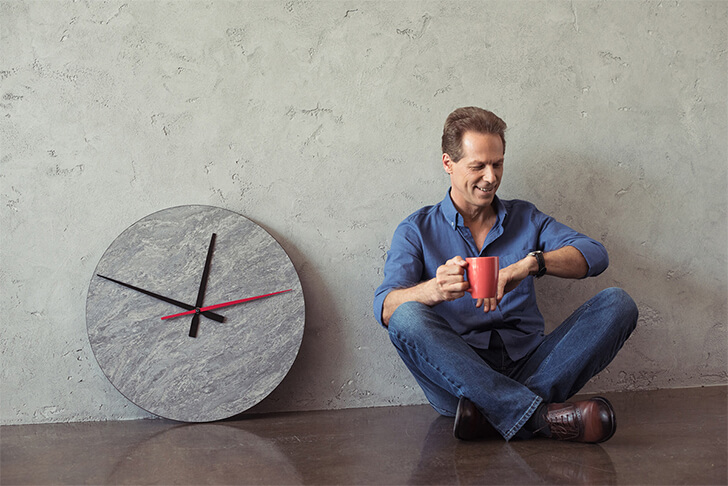
The government mandated a 6-hour workday for all employees. Companies around the country adopted the 6-hour workday to boost worker productivity and morale. Equally as important is limiting distractions in the workplace, such as meetings and breaks, to ensure that employees can focus on their tasks.
Södermalm
Among the several districts in Stockholm, Södermalm’s widely regarded as among the city’s hippest. Vogue named it one of the “World’s 15 Coolest Neighborhoods.” After years as a working-class district, the area has dramatically transformed into a vibrant center of cafes, bars, independent boutiques, and art galleries.
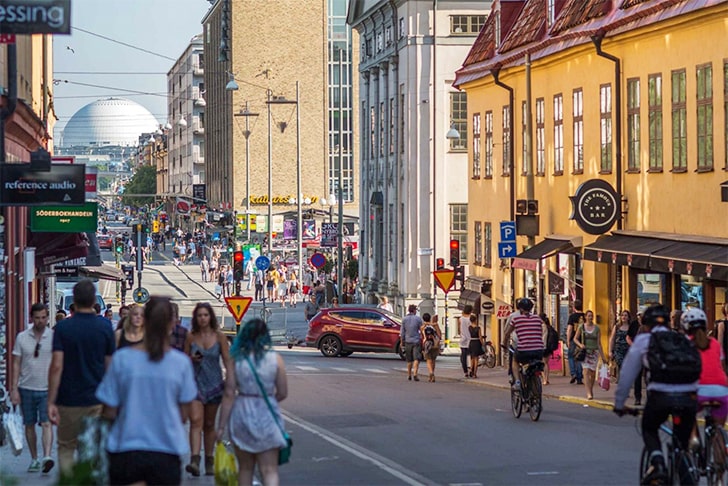
Look no further if you’re looking for fantastic vintage stores, experimental restaurants, and laid-back people. Moreover, you’ll find several art galleries along the water’s edge, including Fotografiska, the famed Swedish Museum of Photography.
The Power of the Swedish Passport
Covers for Swedish passports are easily recognizable thanks to their blue and gold color scheme and the golden crowns on a blue background seen in the country’s coat of arms. It’s noteworthy that Swedish citizens can use it to travel visa-free to 173 different countries. Seriously, how awesome is that?
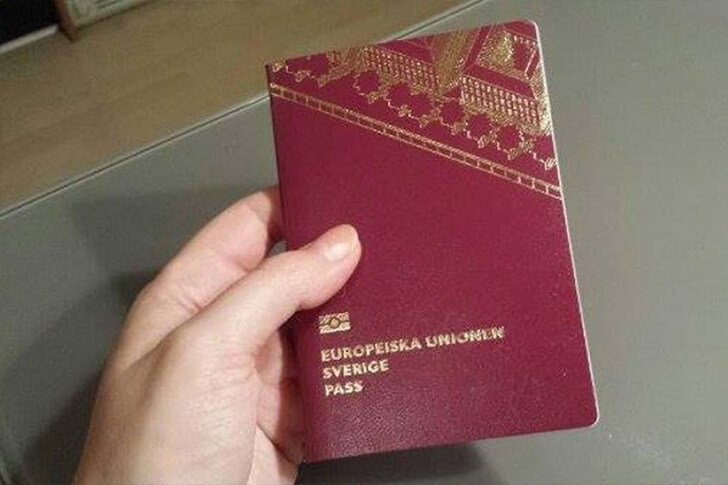
Unsurprisingly, the Global Passport Power Rank places Sweden’s passport fifth place for best in the world. However, naturally, one must be a Swedish citizen to be eligible for it.
Everyone Can Give Speeches At Weddings
The Swedish wedding tradition is unusual because anyone can give a speech, not just the bride’s father, the groom, or the best man. Anyone can deliver a speech.
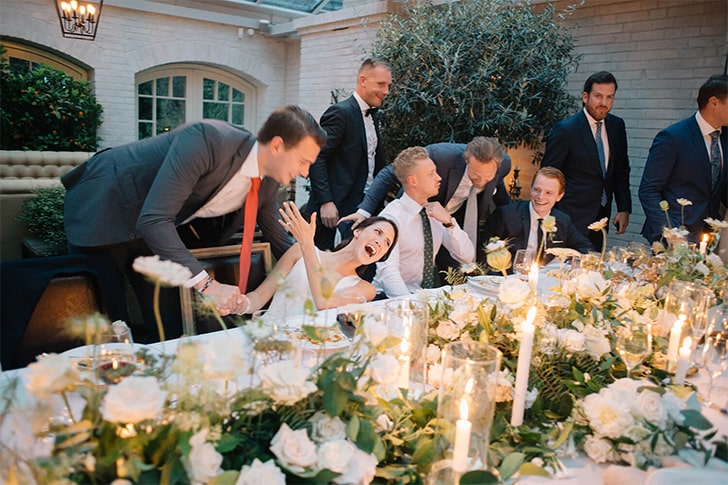
Many Swedes come to life at weddings, where speeches might last from the early hours of the evening until midnight. Everyone from the girl’s family members to the girlfriends of the groom’s buddies tries their best to make the audience laugh and/or cry with an expressive tribute to the newlyweds.
Fika – The Swede Secret
The Swedes consume a lot of coffee, making them known as among the world’s most avid coffee enthusiasts. The Swedish word for coffee breaks is “Fika.” It consists of coffee, cakes, and pleasant chat.
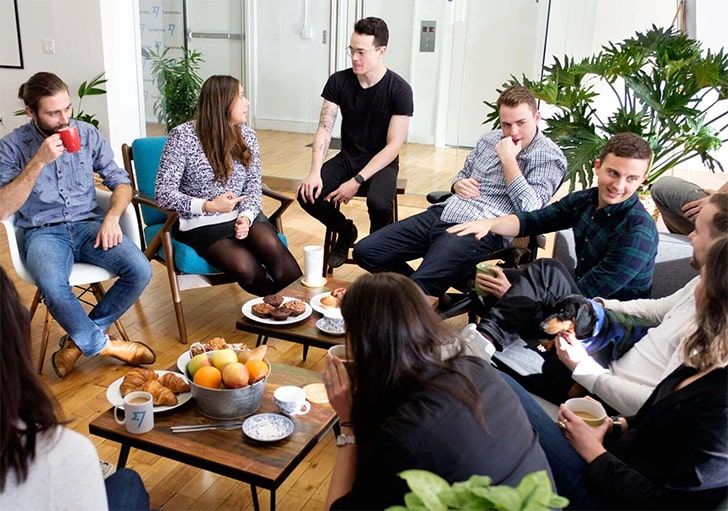
Fika is more than simply a time to relax with a cup of Joe and a slice of cake; it’s a chance to get to know your coworkers and make new friends. Some businesses have designated “Fika rooms” for their staff to relax and bond over a shared interest.
Swede Maternity and Paternity Leave
We all know how stressful it can be for new parents to return to work almost immediately after the birth of their young one. However, you don’t have to worry about returning to work quickly in Sweden.

Parents in Sweden get unpaid leave after the birth of a child. Parents have the right to stay home with their newborn for the first 18 months of their child’s life. The total number of days for maternal and paternal leave is 480.
The Irony of the Healthy Swedish Lifestyle
Swedes are often not stereotyped as being unhealthy or overweight. In reality, one in five Swedes under the age of 30 follows a plant-based diet, and 9% of the total population in Sweden adheres to a vegetarian or vegan diet.

Nonetheless, it is the European country with the most significant concentration of McDonald’s outlets. And therefore, it’s safe to say that there is no scarcity of fast food joints. Other fast-food franchises have tried and failed to thrive in Swedish cities.
No.1 for Patents
Sweden is often recognized as the world’s most prosperous country despite its large population, thanks to its emphasis on technological innovation. As early as the 1600s, Sweden began enforcing laws to preserve inventors’ rights to their creations. A patent’s validity period starts on the filing date and ends 20 years afterward.

Several cutting-edge corporations, like global telecoms giant Ericsson and furnishing giant IKEA, call Sweden home. Both of these firms have filed for and been granted many patents in Sweden.
Living Green
As a result of its dedication to environmental sustainability and preservation, Sweden’s famously a “green” country. In fact, in 1967, the nation was the first to enact legislation protecting the environment.
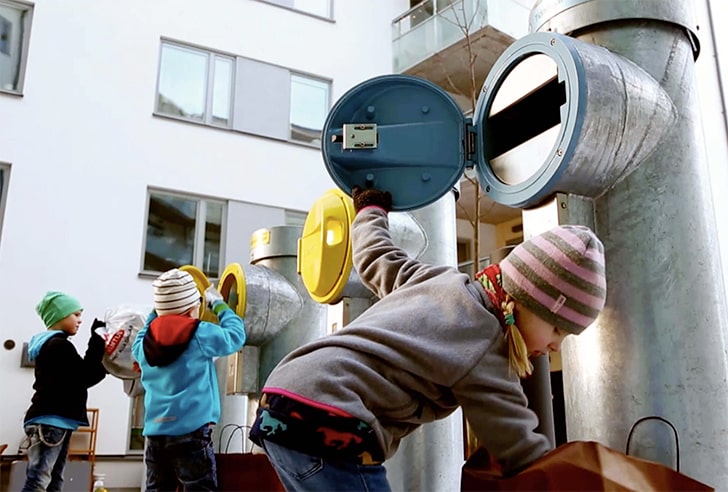
It boasts one of the highest per capita rates of use of renewable energy in the world due to a long history of favoring clean energy. Sweden is also home to numerous significant natural landscapes protected for future generations through the implementation of legislation to protect and manage forests, lakes, and mountains.
Honesty is the Best Policy
The Swedes place a premium on honesty and adhere strictly to the adage that “honesty is the best policy.” Swedes are famously trustworthy, and there’s evidence to support this assumption. They’re the world’s third most open and honest nation, according to the 2021 World Press Freedom
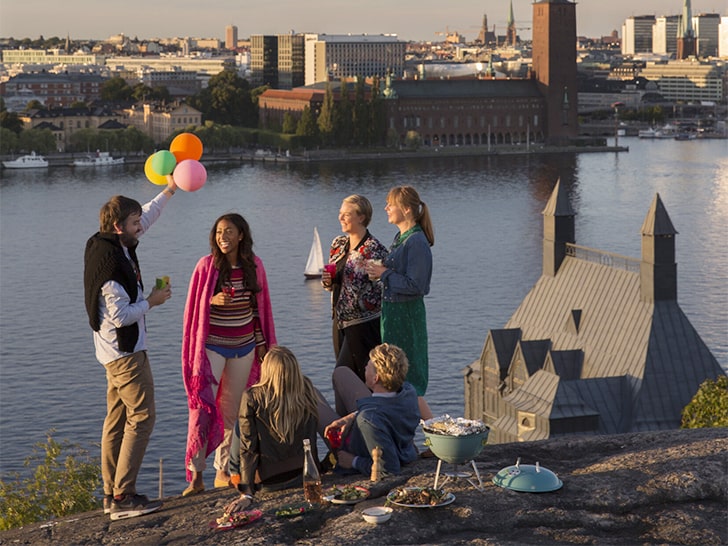
It also consistently achieves excellent marks in international studies measuring honesty and trust, like the World Values Survey. So if you lose something in Sweden, be confident it will find its way back to you.
Flat Hierarchy Structure
Sweden may be well-known for its consensus-based, horizontal organizational structure. But this country is also famous for its laid-back culture and lack of formal hierarchy in the workplace.
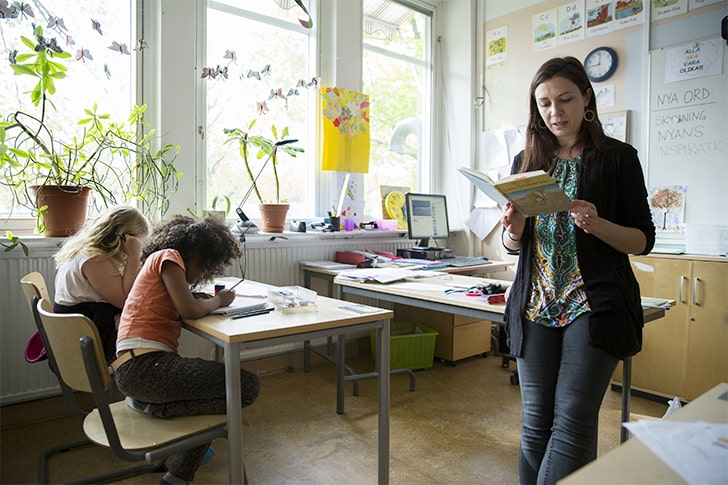
In Sweden, it is acceptable to use a person’s first name regardless of their professional or organizational title. It is expected, in fact, and has less to do with disrespect than typical Swedish culture. In this way, there is no place for superiors or subordinates. Here, everyone is on the same level.
No Small Talk, Thanks
Conversing with a stranger is considered normal in many cultures and can sometimes lead to the development of a lasting friendship. However, the Swedes don’t share this view. They see conversation as a means to an end and don’t put much stock in small talk that leads nowhere.
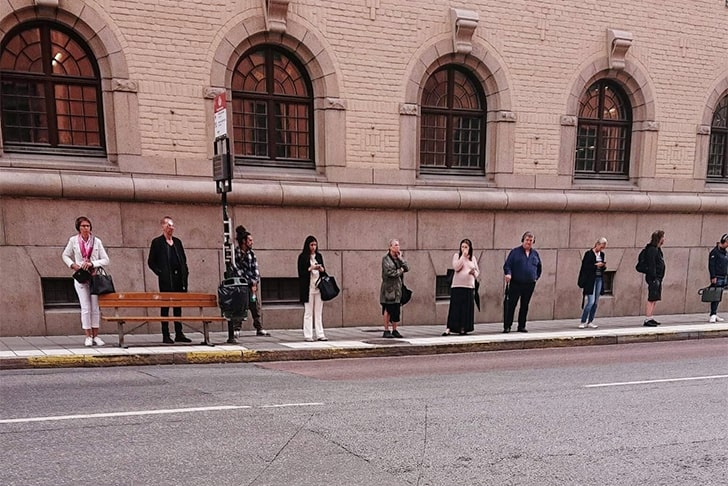
Frequently, they will avoid making eye contact with a stranger to avoid starting a potentially uncomfortable and pointless conversation. Despite their reserved appearance, Swedish people are known to be polite and friendly.
Nothing Personal
Many Swedes are sensitive about privacy. For instance, in crowded situations like elevators, Swedes will often place themselves as far apart from other passengers as possible. A bit over an arm’s length of separation is standard during talks.

In addition to respecting one another’s space, Swedes tend to keep their business to themselves. You wouldn’t catch them disclosing family secrets or personal concerns with strangers or acquaintances. Don’t take it personally if a new Swedish acquaintance keeps you at arm’s length.
Just Get To The Point
Swedes are known for their straightforwardness and directness of speech. The focus of the conversation is on its practical uses. They usually take a direct, diplomatic approach to resolving disagreements.

Swedes try to have a polite tone even when using more direct language. Their directness, which can be misinterpreted as rudeness, is, of course, not their aim. So if you ever find yourself talking to one of them, you can rest assured that there will be no beating about the bush.
Hard To Make Friends
It’s a common misconception that Swedes are cold and withdrawn because they’re so introverted and somber. Conversations of any length or spontaneity are unusual. Some foreigners may find the relative lack of warmth in Sweden’s social interaction unsettling.

To a Swede, however, what could seem like emotional distance is actually just an ingrained cultural norm of keeping one’s own counsel out of courtesy and concern for another’s privacy—because of this, making new friends in the country is challenging but not impossible.
Hobby Friends
Making friends in Sweden can be challenging, but you’ll have more success after mastering the country’s etiquette. One must realize that there are numerous cultures with their conventions and unspoken regulations and that it may be challenging to identify some of them.

Connecting with individuals who have similar interests and hobbies is another option. There’s nothing like spending time with someone in the gym or the lab to forge a strong bond. However, this doesn’t mean that coworkers will magically transform into friends.
Hard to Find a Crib
Compared to other European countries, finding affordable property in Sweden is far more difficult. Since there is a shortage of rural housing, a black market has developed for multi-year rental agreements.
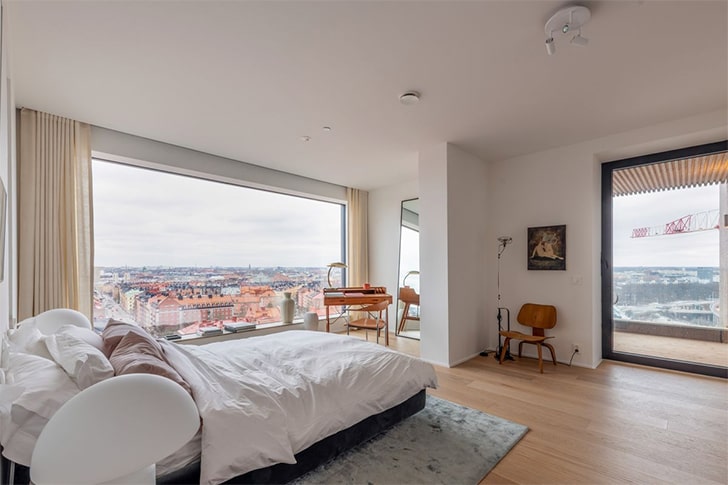
The situation is the worst in Stockholm and Gothenburg, where it is difficult to acquire property and living expenses are elevated. Some wait in line for an apartment for years. In more rural areas, this is an advantage because while housing is expensive, most units are in excellent shape.
Keep It Clean
Finding an apartment in Sweden is complex, and finding one with a washer and dryer is even more challenging. So tough that just considering the idea feels like an impossible daydream. But those that do live well.
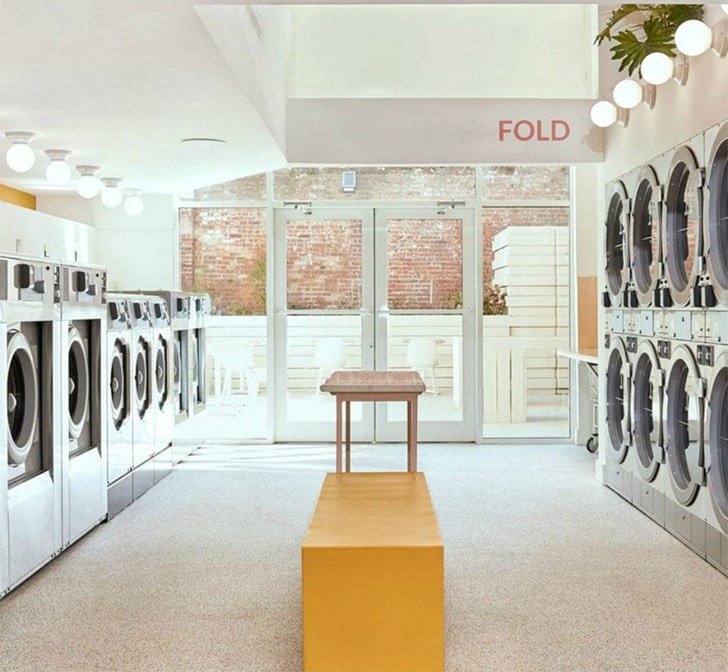
Most people living in an apartment or condo complex must use communal laundry facilities, washing machines, dryers, drying racks, storage cabinets, and how-to guides. This room typically sits in the basement or ground floor of the structure and is free to use.
No Paper Money
The Swedish way of life is ideally suited to cashless transactions. Banking technology has advanced rapidly in Sweden, and it could arguably be the only cashless society that has ever existed.
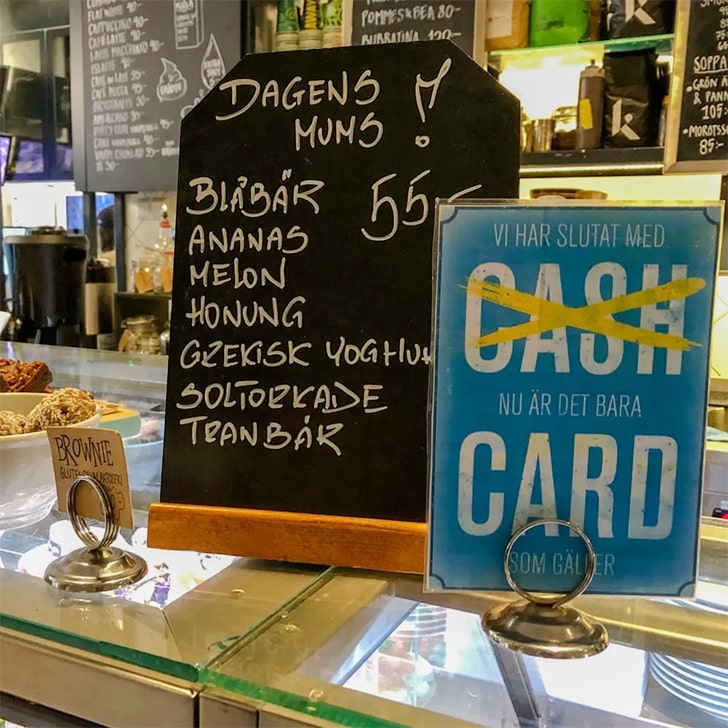
Most of the country’s bank branches no longer take cash deposits, and credit cards, debit cards, and mobile payment systems are the only ways to pay in most stores, museums, and restaurants. Contactless card readers are becoming increasingly common at checkout kiosks. For cash deposits and withdrawals, there are automated teller machines.
Short Summer Hours
It’s common in Sweden for people to leave the country for four or five weeks during the summer to relax at their vacation homes. The average Swede takes 41 paid days off yearly, more than double the global average.
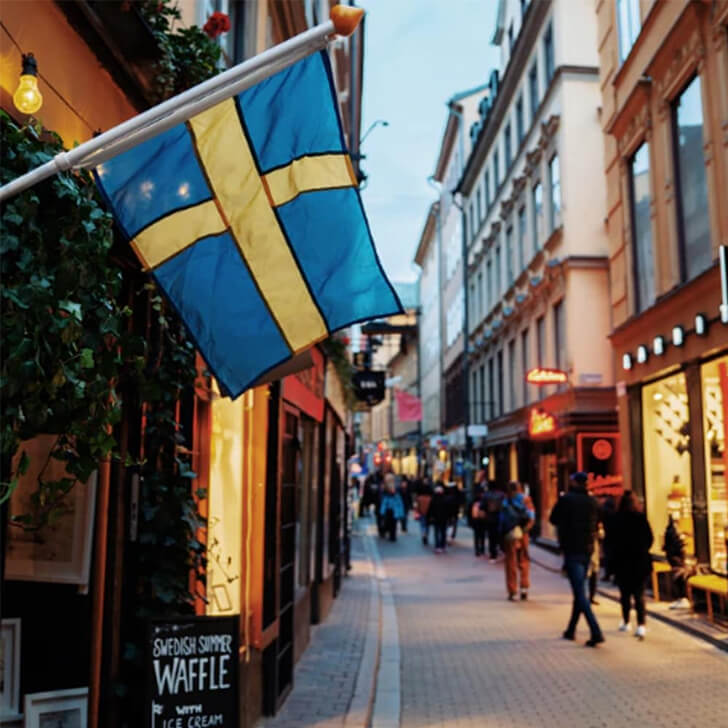
That may give the impression that Swedes are lazy; however, Forbes rated Sweden the greatest country for business in 2017. Investment per capita in Stockholm is second only to Silicon Valley, making it home to one of the world’s most vibrant innovation and startup scenes.
Butter Fingers or Knives?
Butter, along with other dairy products, is a staple in the Swedish diet; hence the butter knife sees regular use. Invented in the ’50s, the Smörknif is a simple wooden tool that Swedes often make by hand at home or on craft day at school.
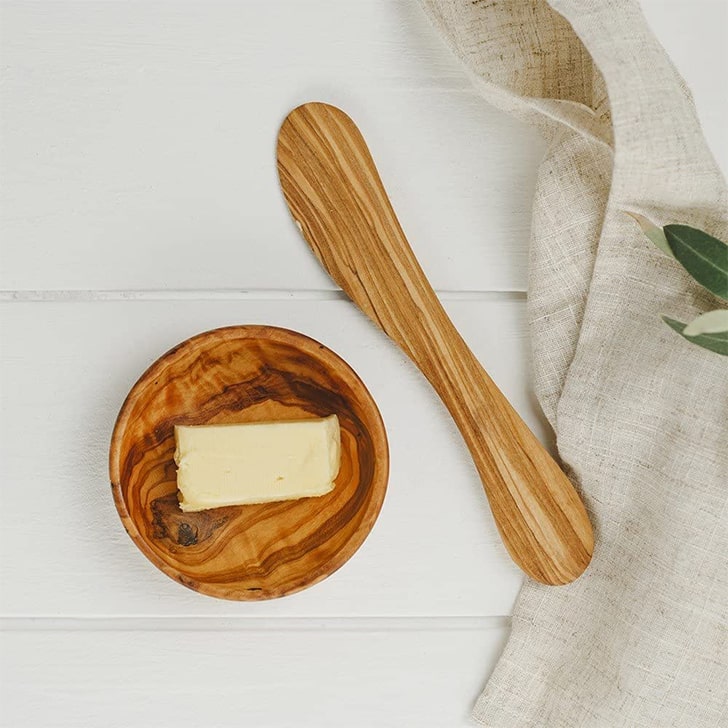
Every Swedish home has at least one of them, and you can find dozens more in souvenir shops across the country, some of which may even have an elk or Viking design carved into the handle.
The Last Slice
Rules exist everywhere you go, even if they aren’t always spelled out, about how to handle leftovers. Leaving some food on one’s plate is a sign of approval in various cultures. In some societies, doing so may be construed as a sign that one is not enjoying their meal.
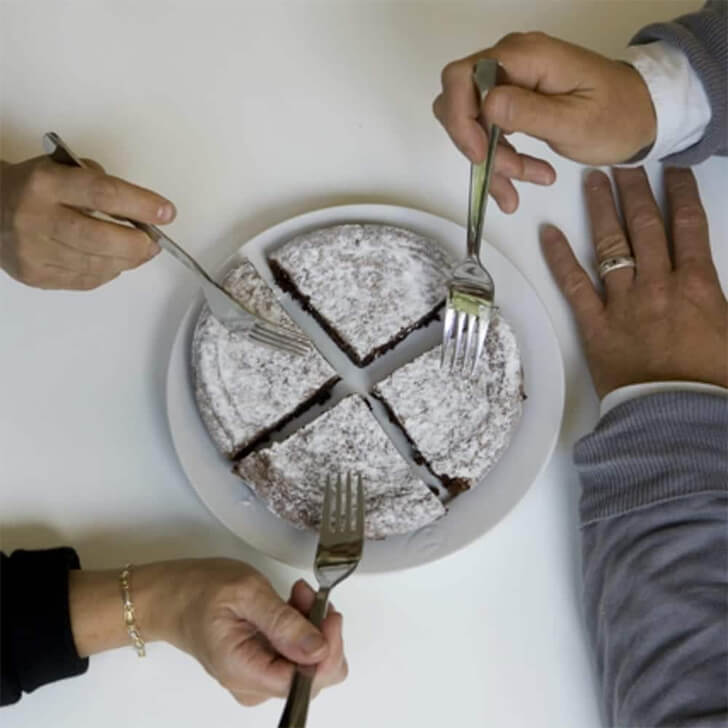
That holds true in Sweden as well. But never leave a communal serving dish or bowl entirely empty; that’ll let people know the food was delicious and there’s plenty for everyone.
Long Live Lingonberries
Native to Scandinavia, lingonberries have been used for centuries in regional dishes. They grow in close proximity to wild blueberries and are ripe in Sweden throughout the months of August and September.

They go well with many traditional Swedish foods, like meatballs and potato pancakes, and are used frequently in Swedish cooking. Locals believe that the potent antioxidants found in lingonberries can help protect the skin from the damaging effects of the sun. Swedish kids also love going lingonberry picking.
A Fine Line
How one must queue up to obtain a service varies from nation to nation. In some countries, customers are seated in the order they arrive, whereas in others, they must physically force their way to the front of the line.
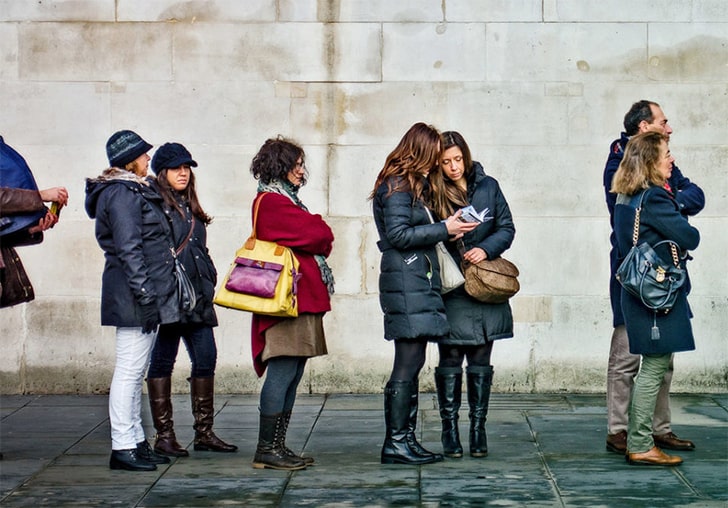
In Sweden, you must be patient and wait in line at just about every location. Ticketing systems are standard; thus, in many cases, customers must wait until it is their turn to approach the counter after receiving their ticket.
Scream It Out
There comes a moment when even the most dedicated student needs a break from the pressures of studying. Uppsala University students have a more dramatic solution to this problem than their counterparts worldwide.

At precisely 10:00 p.m. every night, on the street in the Flogsta neighborhood, the windows of student homes are thrown open, and a chorus of voices erupt in screams, audible for miles around. Those yelling Swedes will make your noisy college roommates seem like angels by comparison.
Take Your Shoes Off!
While many may not want to reveal their feet or their socks or even feel embarrassed to be requested to take off their footwear in public, it’s a culture for the Swedes. Locals consider it quite impolite to wear shoes when entering someone’s home.
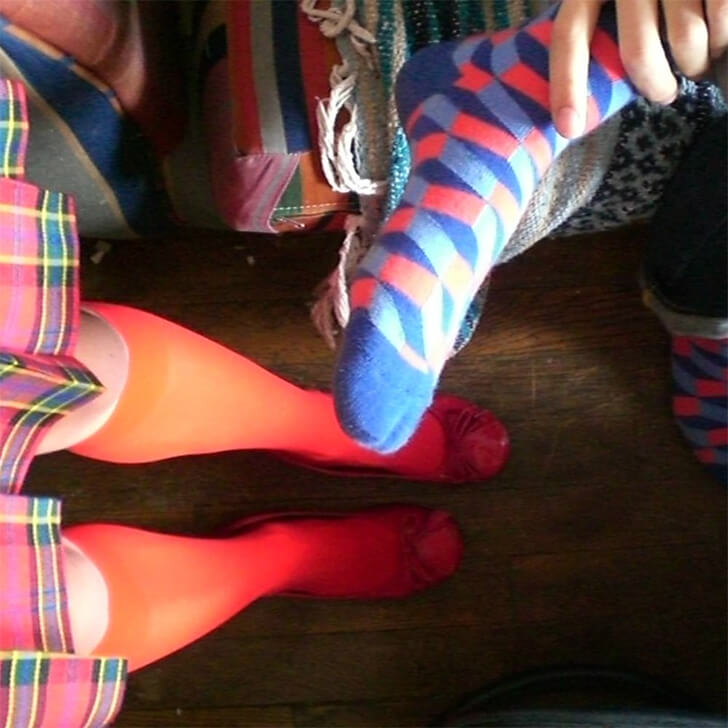
It’s no surprise that this is the case, given that Swedes spend so much time outside in the winter that they need to take extra precautions to avoid tracking in dirt. Doing so is a token of reverence for one’s house.
Prioritizing Punctuality
The Swedish reputation for being prompt is well-deserved. It should be no surprise that Swedes are seldom late because of the country’s highly functional culture. Be on time for everything, whether it’s a business meeting, a formal doctor’s visit, or a friendly Fika with friends. Schedules, plans, and calendars serve this purpose.

The Swedes place a premium on being on time. In today’s society, being late is seen as rude. It is polite to inform your Swedish counterpart of any delays.
Planning and Organizing Is a Big Deal
You can tell that Swedes are disciplined by seeing how they wait in line and how patiently they wait for the pedestrian crossing light to turn green, even when no one else is in sight. The Swedes are both timely and practical and excellent planners who book their calendars months in advance.
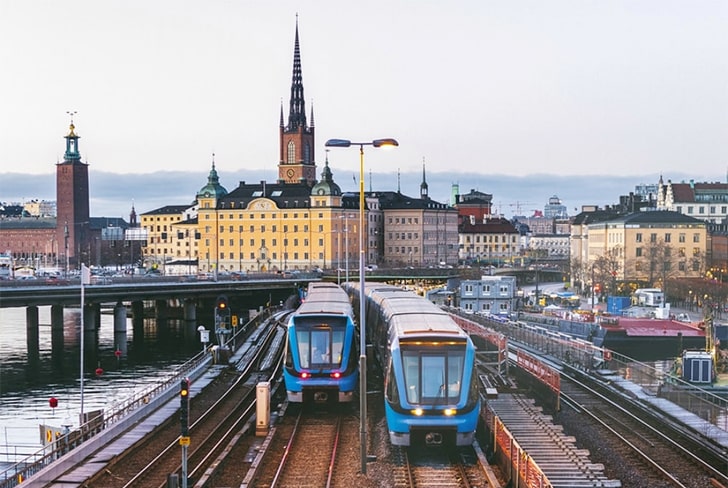
That is not surprising, considering they have one of the world’s best economies. Sweden values order and predictability, so if you love spontaneity, you can feel out of place.
Holiday For Sport
Towards the end of February, Swedes take off for a week for what is known as ‘sportlov’ (ski holiday), designed as a family-friendly sporting vacation. This tradition dates back to World War II when fuel shortages meant that schools had to be closed for a week to conserve supplies. Nowadays, it’s an excuse to indulge in winter sporting activities.

Although many individuals enjoy a ski trip each year, sunny destinations like Thailand and the Canary Islands are becoming increasingly attractive alternatives.
The Ice Hotel
Tourists can find the world-famous Ice Hotel in Sweden. Found in Jukkasjärvi in the northern region, it is the first and only hotel of its kind. It is built annually using ice blocks weighing two tons apiece, sourced from the Torne River.

As soon as the Arctic winter sets in, construction on the site begins in earnest. The hotel is a collaboration between architects, designers, and artists. It has a chic eatery, a relaxing lounge, and a chill ice bar.
Personal Information Easily Accessible
Transparency has long been recognized as a Nordic country’s public benefit. Open government in Sweden has a long history, dating back to the 18th century. Transparency is indeed an effective anti-corruption measure.
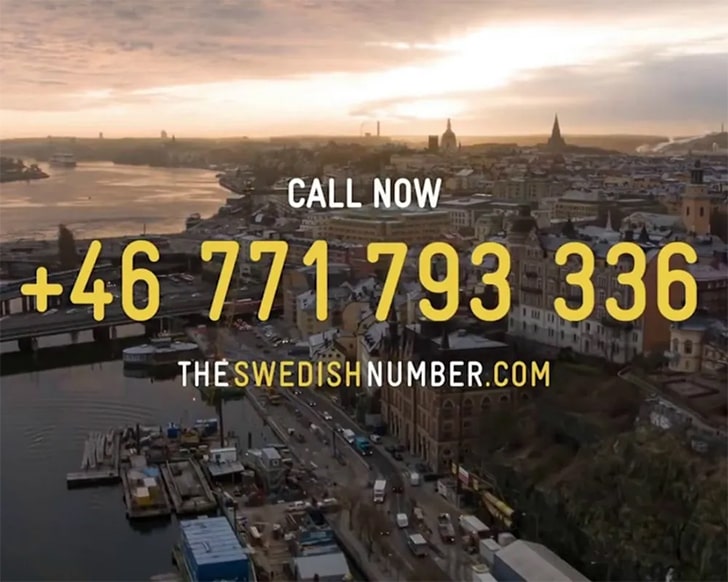
Although Swedes are generally private, their contact information is widely available online, including phone numbers, birth dates, and email addresses. House numbers and even individual apartment units can be found online. A simple name search is all that’s required, and voila! You’d get all the information you need.
Not Too Much, Not Too Little
The Swedish concept of “Lagom,” meaning “just right” or “not too much” in English, is a way of living that emphasizes moderation in all aspects of one’s existence. The Swedish work-life balance that is so enviable among other nations is a product of the “Lagom” mentality.

It’s a hallmark of Swedish culture and one of its most recognizable traits. Swedes put in their fair share of work hours but should not go overboard. Officially, the government has established a 40-hour work week.
A Lot More Vacation Days
To outsiders, Sweden’s generous paid vacation policy of 41 days may sound like a lot, but when combined with other off days such as sick days and public holidays, Swedes spend nearly two months away from the workplace.
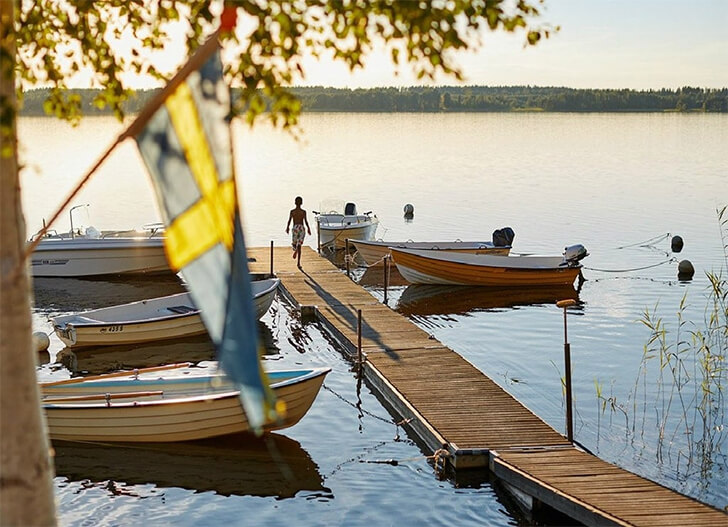
One might wonder why they use so many vacation days.
In the simplest terms, the answer is tradition. Swedes have learned that taking long vacations makes them more efficient. After rest, workers return to their workplaces feeling revitalized and ready to get to work.
Paid For Looking After Your Sick Child
It’s natural for parents to stress out about their children’s wellness. When our kids are unwell, we often take time off work to care for them, which can negatively impact our income.

Sweden has a policy called Vård av Barn that handles this. This provision allows parents to use sick leave to tend their ailing children. Swedish parents don’t have to worry about asking others for help, taking time off work, or going without pay so their sick children can rest.
Fewer Hours, More Productivity
Work-life balance in Sweden is praised highly by foreigners who have worked there. Sweden, a country at the forefront of innovative social policy, has taken measures to alter the working conditions of its residents.

The government mandated a 6-hour workday for all employees. Companies around the country adopted the 6-hour workday to boost worker productivity and morale. Equally as important is limiting distractions in the workplace, such as meetings and breaks, to ensure that employees can focus on their tasks.
Let Kids Be Kids
Sweden consistently ranks as the greatest country in the world to raise a family. The Swedes get it; youngsters shouldn’t be confined and made to sit around all day.
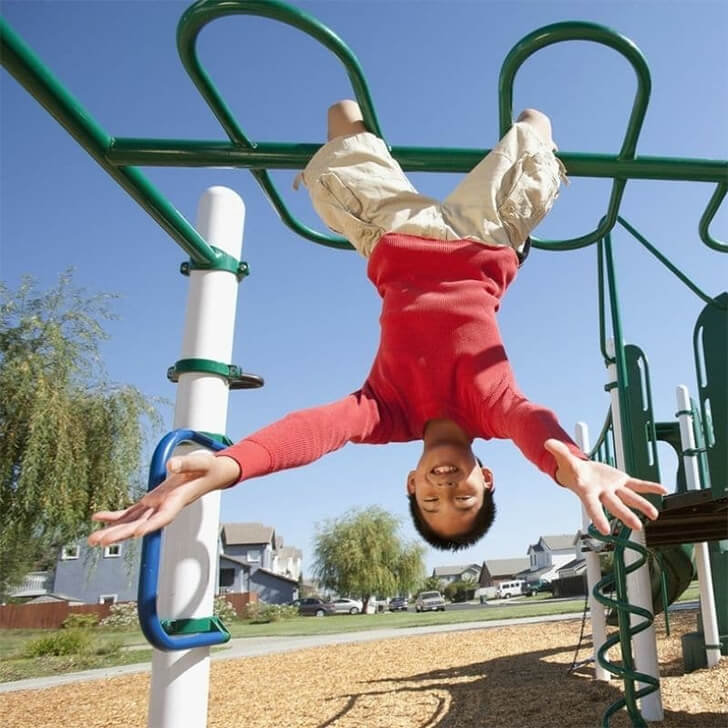
Swedish kids enjoy sports, hiking in the woods, or bouncing around on one of the countless playgrounds dotted around every city and town across the country, no matter how large or small. However, in light of the Swedish penchant for all things outdoors, this should hardly come as a surprise.
Sweet Saturday
Weekends are especially anticipated in Sweden. The weekend has arrived, and you know what that means: time to kick back with a delicious treat.
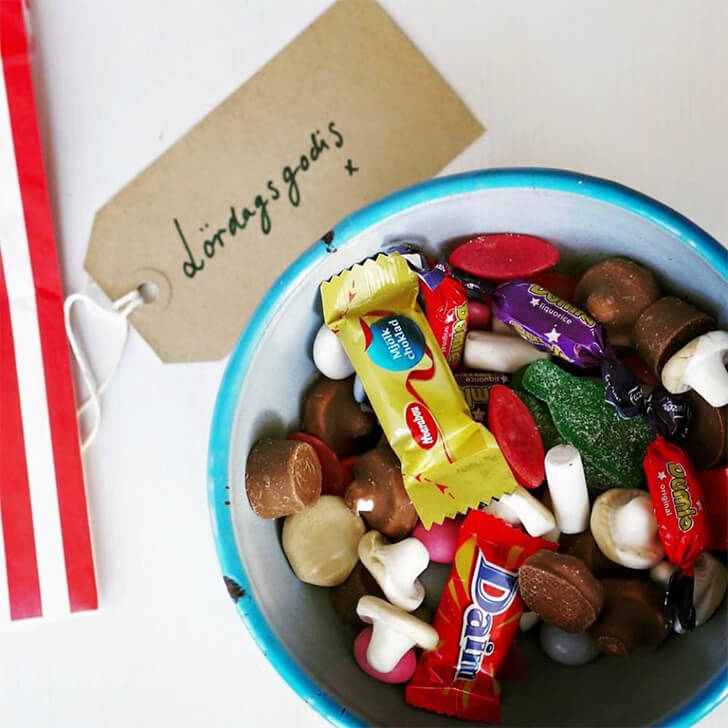
Lördagsgodis, often known as “Saturday candy,” arrives after the Friday junk food carnival ends. On this day, children are typically allowed to indulge in sweets, and they especially like visiting the pick-n-mix aisle of the grocery store and filling a bag with their favorites. For the most part, Swedes spend their weekends indulging in unhealthy foods.
Naming Custom
Unlike in some countries, where parents can choose any name they like for their child, in Sweden, parents must get the names of their newborns approved by the government tax agency, Skatterverket.
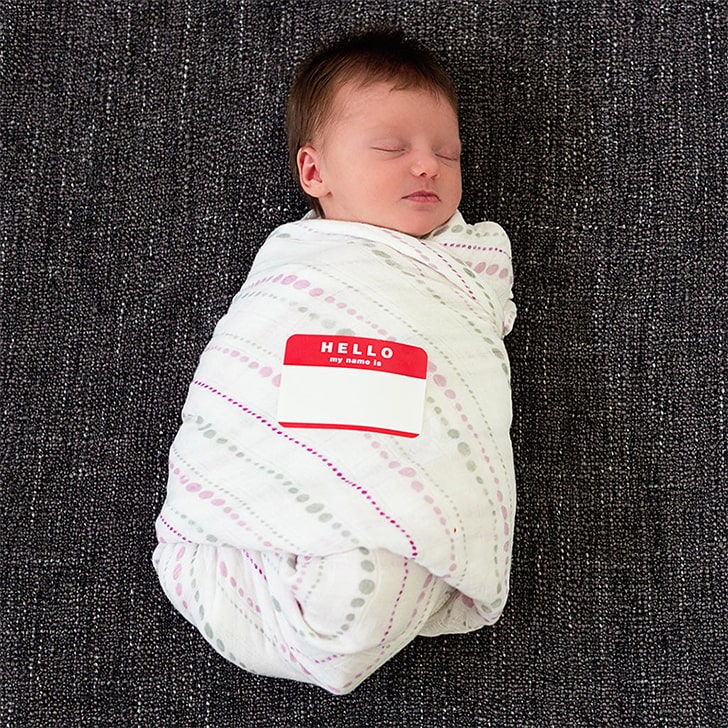
Baby names like Superman, Elvis, Metallica, Ikea, and Brfxxccxxmnpcccclllmmnprxvclmnckssqlbb11116 are not allowed. The government created the law to prevent commoners from bestowing noble names upon their offspring. This rule dates back to 1982 and with an update in 2017, specifying that given names must not be offensive or improper.
Friluftsliv
Sweden is one of the few places where citizens have unrestricted access to the great outdoors. That eliminates the need to acquire permission to camp on private property or pay to pitch a tent.
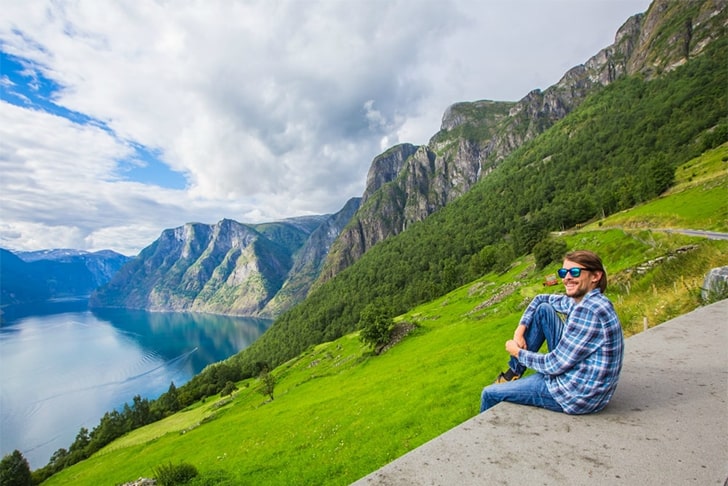
The sole exclusions are private gardens, land near homes, and farmland, granted you don’t trash the environment. The right to roam freely and the availability of public access points make it possible for tourists and residents to gather edible wild plants such as berries, flowers, and mushrooms.
All Man’s Land
A famous Swedish principle is known as “Allemansrätt,” which translates to “everyman’s right.” It guarantees access to public lands regardless of who owns them. The practice has been common since the Middle Ages but wasn’t codified into law until 1974. By 1994 it had been established in the Swedish constitution.
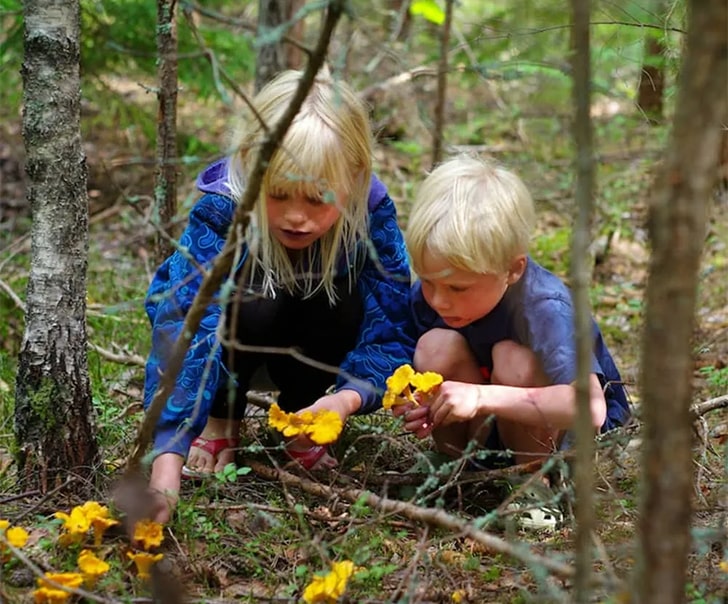
Therefore, Sweden is a sanctuary for lovers of the outdoors. However, people are responsible for protecting the natural environments they visit and any social contact with wildlife they might make.
You must be logged in to post a comment Login